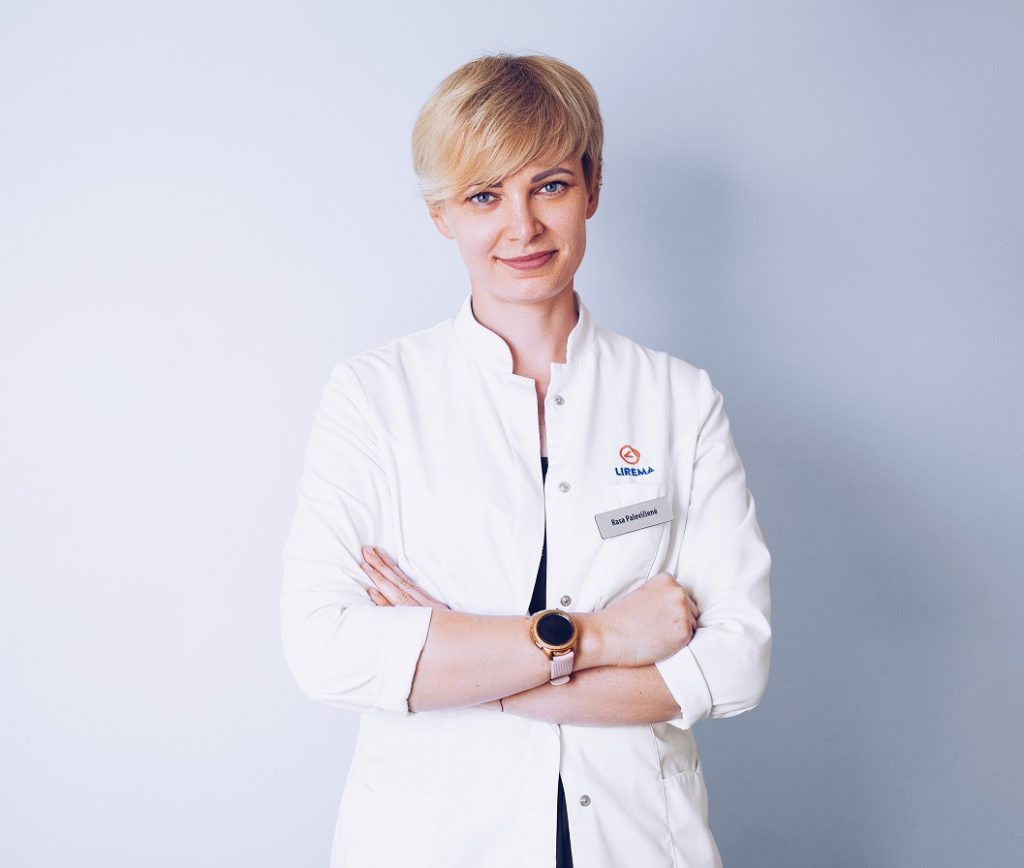Laser eye surgery has been one of the most advanced and effective methods for treating visual impairments for several decades. However, there’s still a common belief that this procedure is only meant for young people and that it’s either too late or not recommended for older people. Is that true, or can older patients enjoy excellent vision?
According to Rasa Palevičienė, an optometrist at Lirema Eye Clinic, age may be one of the criteria for evaluating suitability for laser vision correction. Still, it is not the main factor determining whether the procedure can be performed.
“The suitability for laser vision correction is determined not by age, but by the individual state of each patient’s eyes and general health. If nearsightedness or astigmatism is stable and not progressing, and the eye tissues are sufficiently healthy, the procedure can usually be carried out at any age,” explains the specialist.
The Origin of the Myth That Laser Vision Correction Is Only for Young People
Statistically, laser eye correction is more commonly performed on younger patients between the ages of 18 and 40, because people in this age range are less likely to have other eye-related or autoimmune diseases, such as diabetes and rheumatoid arthritis, etc.
“Comorbid eye or autoimmune diseases can cause additional inflammation, which affects the smooth healing of the cornea after the procedure. Therefore, in such cases, laser vision correction may sometimes not be recommended—it depends on the type of disease, how long it has been progressing, whether it’s advanced or under control, and what medicines the patient is taking,” says R. Palevičienė.
According to the specialist, modern technologies allow for effective vision correction even at an older age, taking into account specific vision problems and the patient’s detailed vision examination data.
“We assess whether the patient’s vision has been stable for the past year, whether it’s changing, whether the cornea is thick enough and of regular shape. We analyze advanced corneal maps showing any irregularities or deformations, such as keratoconus, measure intraocular pressure, lens transparency, and the condition of the retina. If all these indicators are within normal ranges, and the patient is even older than 45, 50, or 60 years old, the procedure can be performed,” the optometrist shares her experience.
What Changes From Age 45+?
As they age, everyone begins to develop presbyopia, also known as age-related farsightedness. This condition makes it difficult to see things up close and requires reading glasses. It begins to appear around the age of 40-45 and progresses over time.
“It is important to understand that presbyopia is not a disease, but a natural process that requires a different solution. In this case, vision correction is necessary, and the modern laser eye correction technology PRESBYOND® makes it possible to improve vision, especially when dealing with age-related farsightedness changes,” points out R. Palevičienė.
Based on the optometrist’s assessment, more and more people aged 45+ are coming to determine whether vision correction is right for them. They are seeking a comfortable solution to travel, read, drive, and play sports without additional corrective measures or maintenance.
“This patient group is growing, because the decision to undergo vision correction is increasingly associated not with aesthetics, but with the desire to live more actively, comfortably, and independently of glasses or contact lenses,” emphasizes R. Palevičienė.
The specialist notes that even if no laser correction methods are suitable for a patient, good vision can often be restored with a quick and painless lens replacement surgery that takes just 20 minutes.
“During the procedure, the anatomical lens is removed through a micro-incision and a new artificial one is implanted into its capsule. We can offer all the most popular vision correction methods, so for patients over 45, the focus should not be on age. Still, on planning a consultation with a specialist who will perform the necessary eye examinations and advise on the most suitable eye correction method for the individual case,” R. Palevičienė summarises.
Fill out the free questionnaire and find out whether laser vision correction is right for you.
